The Cowichan Watershed Board, Cowichan Tribes, and Halalt First Nation undertook field work in 2021 as the first year in a multi-year “Twinned Watersheds” project in the Chemainus and Koksilah Rivers on eastern Vancouver Island, where river flows now frequently fall too low to support the needs of salmon. This phase of the project gathered […]
Twinned Watersheds Project – Overview Booklet
TWO RIVERS, BOTH IN PERIL. The Koksilah and Chemainus Rivers, on Eastern Vancouver Island, BC, have been similarly and severely impacted by climate change and land use. Low summer water flows and degraded stream habitats are a threat to salmon and salmon communities. The Twinned Watersheds Project is an innovative and efficient way of sharing […]
Twinned Watershed Project: Executive Summary – Koksilah River Environmental Flow Assessment
Water holds a prominent place in culture, science, policy, community values and recreational pursuits. Yet, it remains undervalued in comparison to the role that it plays in society and in the cycle of life in the Cowichan Valley, British Columbia. To explore the importance of water in the Xwulqw’selu Sto’lo (Koksilah River), an Environmental Flow […]
Twinned Watershed Project: FULL REPORT – Xwulqw’selu/Koksilah River Environmental Flow Assessment
Over the past number of years water has been elevated to the centre of planning, resource management, and policy discussions. First Nations often refer to water as the life–giving force, as sacred, and as essential for all life. Similarly, western science has described water as the ‘master variable’ in both the distribution and abundance of […]
Twinned Watersheds Project: Riparian Vegetation Assessment in the Chemainus and Koksilah Watersheds
The Twinned Watersheds Project of the Chemainus River and Koksilah River in the Cowichan Region of southern Vancouver Island assessed salmonid habitat, water flow regimes, and riparian habitat within the lower reaches of the main rivers. The fish habitat information is presented in a separate report. This part of the Twinned Watersheds Project focused on […]
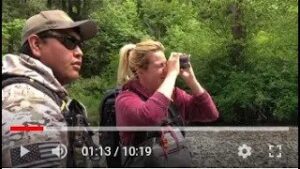
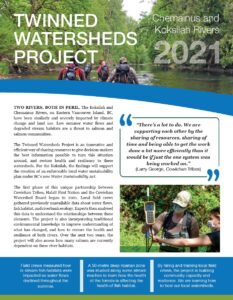
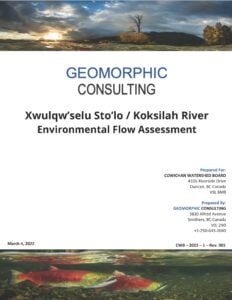
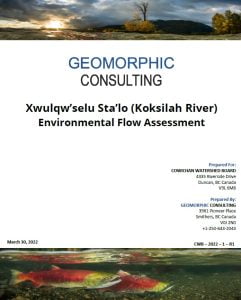
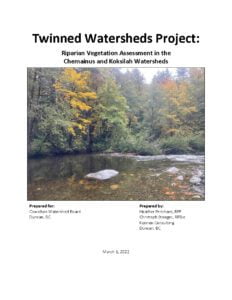
 Email
Email



